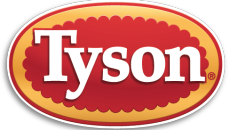The world’s third and second largest oilfield services company, Baker Hughes Incorporated (NYSE:BHI) and Halliburton Company (NYSE:HAL), are in a squabble over the former’s current board of directors after talks of Baker Hughes’ acquisition by Halliburton resulted in a standoff. According to Baker Hughes Incorporated (NYSE:BHI), Halliburton Company (NYSE:HAL) has plans of nominating candidates to sit as the new board of directors of Baker Hughes, in lieu of its current board. The matter came into light after Halliburton’s first offer to buy Baker Hughes’ was rejected by the latter’s board, saying it is inadequate to cover in value.
The price proposed by Halliburton Company (NYSE:HAL) was not disclosed by Baker Hughes Incorporated (NYSE:BHI), which currently stand to a market value of about $26 billion. In an announcement regarding receipt of director nominations from Halliburton, Baker Hughes said that the move is an attempt to pressure the Baker Hughes’ board into accepting the acquisition on Halliburton’s terms. In a subsequent letter, Baker Hughes’ Chairman and CEO Martin Craighead expressed concerns to Halliburton Chairman and CEO David Lesar regarding the latter’s refusal to show flexibility on Halliburton’s initial value proposal, adding further that it is inappropriate for Halliburton to try controlling both sides of the negotiation. Baker Hughes’ then advised its stockholders not to take any further action.
The planned merger of Baker Hughes Incorporated (NYSE:BHI) and Halliburton Company (NYSE:HAL), if completed, could turn out to be one of the biggest in the oilfield service industry. The combined revenues of the two companies for 2013 stand at $52 billion. Revenue of Schlumberger Limited (NYSE:SLB), the worlds biggest oilfield service company, stand at $46 billion for the same year. A Baker Hughes-Halliburton merger would create a company worth about $67 billion, only half the size of Schlumberger Limited (NYSE:SLB), which is valued at about $125 billion. A merger, however, faces possible antitrust concerns, not only in the U.S. but also in places such as Brazil, China, Europe, and Mexico.
Talks of the merger sent Halliburton’s shares up to 3.5%. Baker Hughes’ shares, on the other hand, jumped up to 18%, after having declined as low as 32% between late June and Thursday last week when news of the possible transaction spread. The current tension between the two companies, however, sent Baker Hughes’ share down again by 2.3% at $58.51 in closing of regular trading on Friday, while Halliburton’s share declined to $54.98 from $55.08.
This article has been written by Nonito Guntan.


